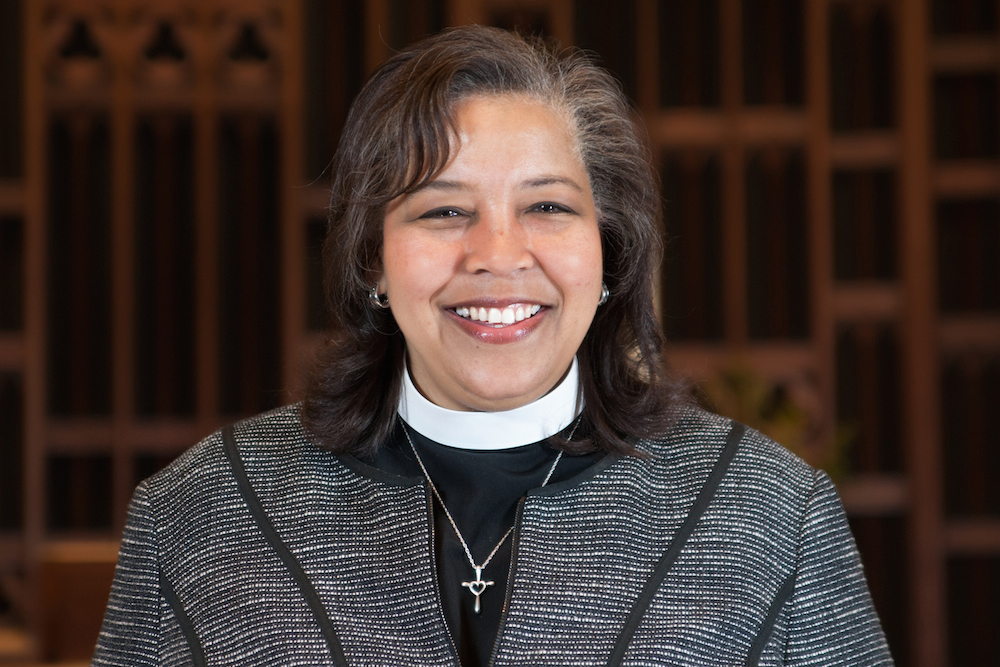 An Easter reflection by Deputy Carlye J. Hughes, Diocese of Fort Worth
An Easter reflection by Deputy Carlye J. Hughes, Diocese of Fort Worth
Now among those who went up to worship at the festival were some Greeks. They came to Philip, who was from Bethsaida in Galilee, and said to him, “Sir, we wish to see Jesus.” John 12:21
Alongside the Lenten disciplines and supper programs, in the midst of the fasts (including broken fasts), and attached to Easter preparations is a deep desire to see Jesus. It seems the longing expressed by those Greek outsiders to the disciples is the same longing that draws us year after year in hopefulness to Easter. We too wish to see Jesus.
Will this be the time when our guests see Jesus? In the special services for children, in the child-friendly tunes, and in the Easter egg hunts, will our children see Jesus? When a stranger encounters our invitation to Easter worship on websites, social media, mailers or ads and then responds by coming to church will she see Jesus? And what about us—will we see Jesus?
It is not just our longing. The whole world suffers with the ache of loneness. We may confidently call it individuality or independence in the United States, but once revealed, the simple starkness of our lone selves dearly wants to see Jesus. In the dark hours of the night our longing takes shape, gathers force, and presses us to action. Regardless of whether we belong to a faith community or not, the desire to step out of loneness can and does propel us to go and see Jesus.
Our need to see him adds a level of connection to others seeking Jesus this Easter. God’s audacious defiance of physical limitation in Christ’s resurrection draws all manner of people. Some of them will enter our churches for the first time on Easter guided by their longing that so matches our own.
We live at a time when belonging to church makes us “other,” outside the norm, and strangers in a strange land. Yet, at Easter, we want to throw open the doors and invite all those who do not belong. We want to see Jesus and we want everyone else to see him as well. And if our eyes are open and we look actively we will see him in ways that are great and small, unique and particular to each of us.
Certainly we will see Jesus in the strangers and others that join us in worship on Easter. We may see Jesus in the many that will not go to our church or any other church. Providing for families requires some to work every day of the week. Illness, addiction, incarceration, and a host of other troubles will prevent attendance. The pain of those too ashamed to come to church without the right clothes, money to put in the offering plate, or other requirements of belonging will stay home to hide from Jesus’ eyes and ours. Yet we make room for them and we make room for Jesus. Our readiness to welcome the absent ones can be as important as their actual arrival at our doors.
Jesus told the disciples and all those who listened, including the Greeks asking to see him…and including us, “Walk while you have the light, so that the darkness may not overtake you.” (John 12:35). The boldness of the Resurrection breaks the boundaries of time and space and ushers us into the abundant light of Jesus. Powers and principalities did not diminish this light. Suffering and death did not defeat his light. Our loneness is transformed by the light of Jesus and his love for us.
The fact that our lives are illumined by Jesus and overflow with his love for us will always run counter to the darkness around us. The radiance of Jesus’ light will always leave a mark on us making us easy to spot and counter to the norm. Our “otherness” is evidence of Christ’s ongoing transformation of us, our lives, our church, and our world.
We love our church and we tend faithfully to its evolving needs, even as it requires us to follow Christ’s light into new and different ways of being church. Still, for the outsider, for those “others,” and for the stranger, one of the greatest gifts of our church is our otherness. We see Jesus because we are not the church we used to be. We see Jesus as he reveals next steps when we cannot see through darkness. Jesus is seen in us because our struggles are transparent and visible. In this Easter light we see Jesus and Jesus is seen. Alleluia. Alleluia.
Happy Easter!


